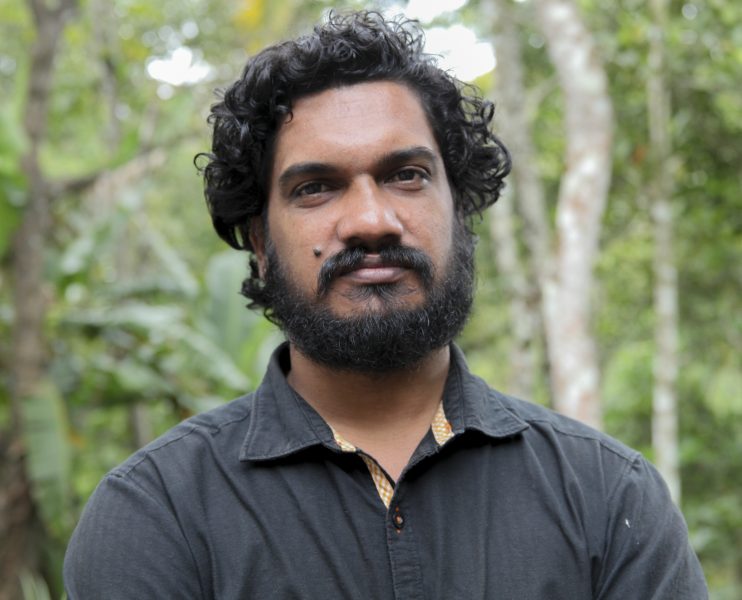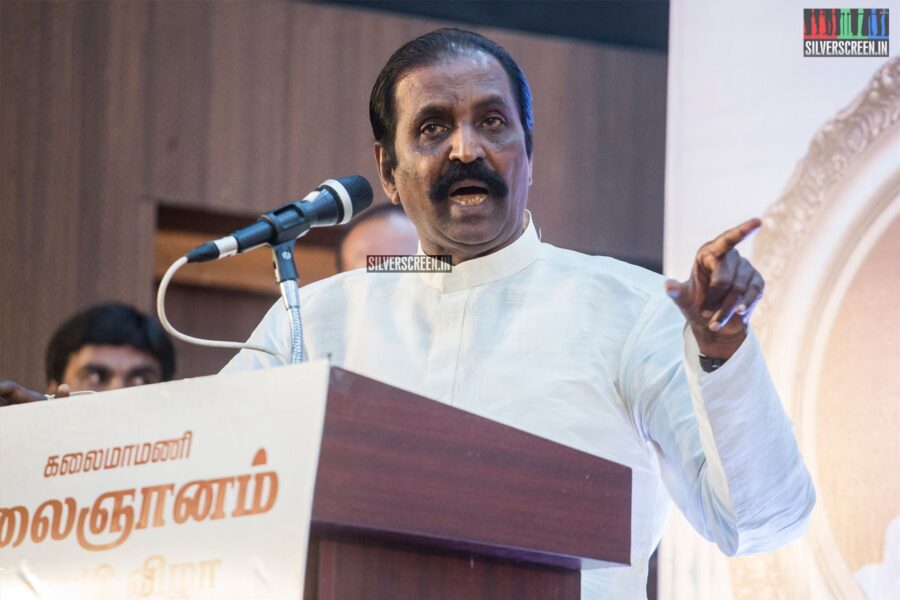When award-winning filmmaker Sanal Kumar Sasidharan wrote a Facebook post on the night badminton player P V Sindhu won a historic Olympic Silver Medal, not in his farthest dreams might he have imagined the gravity of the trouble he would soon get into.
There was nothing worth celebrating about the athlete’s victory, he had said in his Malayalam post. “What if I want to spit on it [her feat]?” he asked in the post which, in no time, became a talking point. The comment section of his post was flooded with abusive responses, and Kairali Channel, the mouthpiece of Kerala’s left parties had it in their news scrolls that night. The story was immediately picked by many media houses all over the country, and Sanal went from being a critically acclaimed filmmaker to publicity-mongering ‘anti-nationalist,’ overnight.
Sanal says his post was meant as dark humour. “It was directed at a set of chauvinists who came out of their holes after Sindhu’s medal win, and tried to belittle her feat by lamenting about the dire state of civic affairs in the country. I was just mimicking them,” Sanal told Silverscreen.
While many of Sanal’s friends and well-wishers defended him by saying that it was just another light-veined social experiment by the director whose Facebook posts always had an underlay of sarcasm, the hate storm just wouldn’t wane.
As Sanal remarked in a later post, these are dangerous times. The comments under the controversial post ranged from blatant cuss words to those tagging the director as an ‘anti-national’ who should ‘leave the country immediately’. Interestingly, many people who accused Sanal of insulting Sindhu, used sexist and outright misogynist language against him! Sanal calls it ‘toilet-culture’. “It is an interesting phenomenon. In a closed society where we live, people enjoy taking part in these online hate campaigns. Hate and other negativity spread quickly. Like the cuss words written on the wall of a toilet,” he said.
What Sanal found the strangest was the media’s reaction to the issue. “Most of the people, even media personnel, asked me why the humour in my language was not clear enough. They don’t get a joke or a point unless it’s loud, casual and direct. If the Kairali TV people had taken a moment to go through my previous posts on social media, they would have got what I meant. That a respectable media group did a lazy, irresponsible campaign to malign an individual shows how corrupted the society is,” he says.
Kairali TV went a step ahead and organised a talk show to analyse Sanal’s post. “There is nothing to be discussed,” responded Sanal, when the reporter sought his side of the story. “The whole incident is about a mob verbally attacking a person who said something they don’t agree with – or pretend that they don’t agree with,” he said.
“The comments under my post are so misogynist and hypocritical. This is a society that celebrates a woman’s Olympic win, yet protests when a girl wants to go out after 7 pm. This is the society which blames a woman for rape, slut-shames her for wearing the clothes of her choice,” adds Sanal.
He has no regrets about his post. “I don’t regret writing that post. I am not answerable to this mass hate campaign. It reaffirmed my doubts about the mob mentality on social networking sites. It is a fascist tendency to fuss over diverse opinions. Why is it necessary to stick to the collective opinion of the society?” asks Sanal.
Sanal Kumar Sasidharan, a former practising lawyer, rose to prominence in Kerala’s indie cinema scene with his breakout short-film Frog which won a Kerala State Television Award for best short-film in 2008. His first feature film, Oraalpokkam (Six Feet High), starring activist Meena Kandasamy in the lead role, was released in 2012. The film won the state film award for second best film in 2013. His second and the most acclaimed film, Ozhivu Divasathe Kali (An Off-day Game), was released in 2016. The film won the Kerala State Award for the best feature film, and earned praises from critics and audience alike.
The filmmaker’s latest post on Facebook is a detailed explanation of what stirred up the trouble. “We are living in a very difficult time. People who do not understand satire and without a minimum sense of humor are ruling the media…This is a horrifying situation. It is worthless to explain to a mad crowd, who only want to abuse and attack without spending even a few seconds to understand what I said actually,” wrote the director, “I am not mad to demean a lady who fought and won for the entire female community in our patriarchal country. It was one of the greatest victories in this Olympics because she was fighting from a nation which is suffering from female suppression for centuries”.
To Silverscreen he said, “until recently, I could express my feelings on social media without being threatened by critics. Now, after my films won some accolades, I have been labelled a celebrity. That’s a trap. Celebrities, according to the unwritten rule of the society, should always stick to the popular opinions. That is why many good filmmakers end up making mediocre films in the later stages of their career. I don’t want to be one [celebrity] by sacrificing the freedom to speak my mind.”
“This society loves making idols. They are eager to anoint a figure as a holy cow and anyone who dares to speak a word against him/her will face the wrath of the mob. Not a new phenomenon at all,” he continues, “conforming to that would mean going against the country’s [tenets of] democracy which gives citizens their right to free speech.”
Recommended
The mass campaign against Sanal is eerily similar to the recent controversy around a passing statement made by actor Naseeruddin Shah on Rajesh Khanna when Shah, in an interview, said that Rajesh Khanna was responsible for bringing “mediocrity” in Hindi cinema of the 70s. The actor was slammed by a section of the bollywood fraternity and media. Does being a bollywood actor forbid him from expressing his (negative) opinion on an actor, popularly perceived as a legend? Rajesh Khanna’s daughter, Twinkle Khanna made a series of scathing Tweets on Shah’s comment and her colleagues, such as Karan Johar, joined in slamming Shah, who, eventually, brought the controversy to an end by apologising to Twinkle Khanna.



